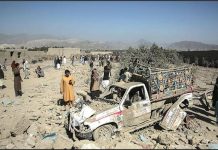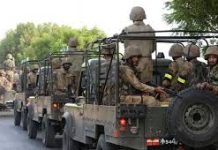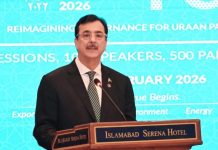
Wars are remembered not just for their battles but for the legacies they leave behind. For Pakistan, the 1965 war with India has long been celebrated as a moment of national pride. Yet, only six years later, the country suffered its most humiliating defeat with the fall of Dhaka and the loss of East Pakistan. How did a nation that appeared militarily triumphant in 1965 collapse politically and strategically by 1971? The answer lies in the lessons we failed to learn, the warnings we ignored, and the arrogance that crept into our statecraft. Contrary to popular belief, the war of 1965 did not erupt in September. It began in April 1965 when Pakistani forces launched an operation in the Rann of Kutch to recapture Biar Bet, a disputed territory under Indian control. The operation succeeded, leaving India humiliated. Prime Minister Lal Bahadur Shastri threatened retaliation, setting the stage for escalation.Encouraged by the outcome, Pakistan later launched Operation Gibraltar in Azad Kashmir, hoping to ignite an uprising against Indian control. Instead of being destabilized, India responded by opening a new front across the international border in Punjab, under the assumption that Pakistan had left it undefended. But India miscalculated. Pakistani forces were waiting. What followed was a series of fierce battles across Lahore, Sialkot, and the Kashmir front.
On land, in the air, and at sea, Pakistan’s forces fought with exceptional courage. The Pakistan Air Force achieved dominance in several sectors, while the Navy carried out daring raids on Indian coastal installations. By the time the ceasefire was declared, Pakistan had held its ground and inflicted significant losses. For many Pakistanis, this was a clear victory, a vindication of the nation’s will and its armed forces.
But wars are not won only on the battlefield. The 1965 war ended inconclusively, with both sides claiming victory. Pakistanis celebrated, but India learned valuable lessons. It restructured its armed forces, expanded its economy, and built stronger diplomatic ties with global powers. Pakistan, meanwhile, grew complacent. Instead of translating military success into political strength, Pakistan drifted into overconfidence. The ruling elite began to view military might as the ultimate guarantor of supremacy, ignoring the fact that national security is rooted as much in political stability and economic resilience as in armed strength.
The story of 1965 and 1971 is a cautionary tale. Military victories, no matter how glorious, are temporary if not anchored in political stability, national cohesion, and visionary leadership. Supremacy is not a prize won once on the battlefield—it is a constant responsibility that requires unity, foresight, and adaptability there is one enduring lesson, it is this: nations are not broken by the strength of their enemies, but by the weaknesses they refuse to confront within themselves.
in war is not enough without political wisdom. Military achievements of 1965 gave Pakistan overconfidence, but we neglected political reconciliation with our own eastern wing. Diplomacy must walk alongside defence. After 1965, instead of consolidating gains diplomatically and preparing for long-term stability, Pakistan slipped into complacency. India, on the other hand, restructured its military, economy, and foreign alliances. National cohesion is the ultimate weapon. The alienation of Bengalis was ignored until it was too late. No army, however brave, can defend a country divided from within.The nation witnessed a grand victory and display of one nation in May 2025 after 60 years when our armed forces backed up by people gave crushing defeat to India that has changed the global concept where arms were defeated by modern technology
In short, Pakistan won on the battlefield in 1965 but lost in the realm of politics and statecraft by 1971. The lesson is clear: supremacy is not maintained by the sword alone but by unity, political foresight, and the ability to transform military victories into lasting national strength. In the most difficult times, living nations emerge stronger and more resilient. When the enemy threatened our survival in the 1965 war, the Pakistani people stood steadfast and resolute. To this date, every year on September 6th, Pakistan celebrates Defence Day to honor Pakistan’s successful defence against India, which marked the end of the 1965 war and it reminds us the sacricies given by people and our brave soldiers.
The entire world has watched the Pakistani nation’s devotion and tremendous sacrifices in standing firm with its military forces during difficult times. So, on this day, the entire nation honors the Ghazis and Shuhada who fulfilled their responsibilities to defend the motherland.
In addition, the Pakistani armed forces personified the spirit of bravery and selfless sacrifice in defending the country’s territorial boundaries. Thus, we pay homage to the valiant Shuhada who gave their precious lives in order to defend their country.
India suffered from major casualties in this war. Pakistan repelled an invasion of its territory by an enemy four times its size, and the entire nation rose to the occasion with strong resolve and ready anytime for action replay and the nation is now ready to convert 6 September into 365 days each year. Nation salutes it armed forces and pledges to fight the enemies at all fronts on the call of defence forces. Pakistan Zindabad Pakistan Forces Zindabad
- During the Indo-Pak War, the United States stopped military supply
- to both sides.
- The Soviet Union and the United States established a united stance to event the war within the subcontinent from escalating into global warfare.
- China threatened to interfere and promised Pakistan military assistance. h the Soviet Union and the United States pressured the end
.

























